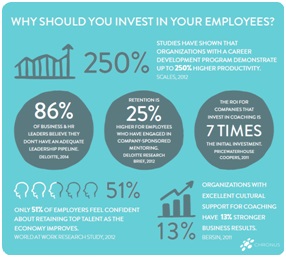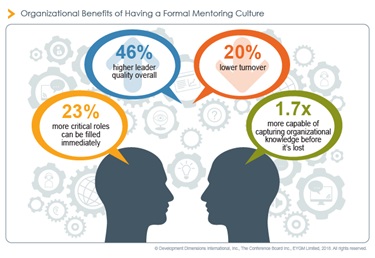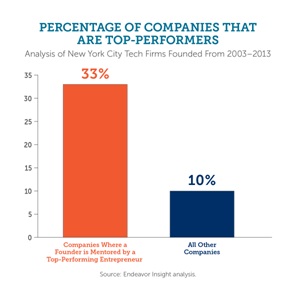
Research Paper By Margot Ling
(Performance & Empowerment Coach, HONG KONG)
Background
 Being a media and technology business professional, I have been enjoying the certified coaching course as my latest personal development. This is definitely one of the best decisions in my life, beyond career purposes. Throughout the whole ICA journey, I have not only gained knowledge and skills on the ICF gold standards, but I have also discovered more about myself, the beauty of people and the world. Besides running my own cross-border consultancy, I am also entering the space of coaching and mentoring for other tech and media start-up founders. My next question is, how can I integrate my professional knowledge into a blended coaching business? There is always the first next step. I reckon that having thorough research about technology in the coaching and mentoring space is something useful.
Being a media and technology business professional, I have been enjoying the certified coaching course as my latest personal development. This is definitely one of the best decisions in my life, beyond career purposes. Throughout the whole ICA journey, I have not only gained knowledge and skills on the ICF gold standards, but I have also discovered more about myself, the beauty of people and the world. Besides running my own cross-border consultancy, I am also entering the space of coaching and mentoring for other tech and media start-up founders. My next question is, how can I integrate my professional knowledge into a blended coaching business? There is always the first next step. I reckon that having thorough research about technology in the coaching and mentoring space is something useful.
Introduction
Coaching and mentoring are similar activities and yet distinct in their approach as a profession. However, the terms are used interchangeably in a business context. Very often, in a corporate or business setting, there are mentoring programs conducted by more experienced executives for the less experienced talents, of which they are applying the blended coaching approach.
Based on the definition of International Coach Federation (ICF), coaching is partnering with clients in a thought-provoking and creative process that inspires them to maximize their personal and professional potential; whereas, a mentor is someone who shares his knowledge and expertise to help a person with lesser experience to grow in his role.
According to the Cambridge dictionary, mentoring is the act of process of helping and giving advice to a younger or less experienced person, especially in a job or at school.
These blended coaching programs are usually on a one-to-one personal interaction basis, between the coach/mentor or client/mentee. In a modern context, the role and method of interaction have changed in a versatile manner. Corporate industry and economies across the globe have witnessed a transformation due to the convergence of technology. Much has changed in the way industry professionals follow and execute processes for effective results.
Findings
Technology as a disruptor and catalyst in the coaching and mentoring experience
 Instead of machines and robots that are behind organizational productivity, it is about developing the human potential for greater success. However, technology has become an integral part of our work-life activities. It is an effective facilitator and an enabler to create robust processes.
Instead of machines and robots that are behind organizational productivity, it is about developing the human potential for greater success. However, technology has become an integral part of our work-life activities. It is an effective facilitator and an enabler to create robust processes.
Early users of coaching and mentoring enterprise applications have experienced phenomenal results in the overall growth of their organizational activity. The demand and growth for coaching and mentoring have grown by leaps and bounds. It is important not only from a human resources perspective but also to improve sales, manpower skills, talent development, communication, client relations, and retention. etc
 Technology breaks down barriers to implementing effective coaching and mentoring practices by reducing workloads. It is also integrated with talent development programs as a scaled-up exercise.
Technology breaks down barriers to implementing effective coaching and mentoring practices by reducing workloads. It is also integrated with talent development programs as a scaled-up exercise.
For instance, a typical mentoring software is a versatile mix of many capabilities i.e., a mentee can connect with a mentor who is physically located at an offshore location. It is no longer necessary for a mentor and mentee to be under the same roof and seated in front of each other. It is a paradigm shift in the way mentoring and coaching happens to be conducted as a workplace activity.
Advantages of technology in coaching and mentoring
There are many benefits coaching and mentoring can leverage on with technological integration such as an application (APP). Here are a few examples:
(1) Location – It is no longer mandatory that coaches/mentors or clients/mentees are to remain present within the physical premises of the company. The coaching session can be carried out via audio-video virtual conferencing. Clients can have the option to choose his or her coach from any location across the globe.
(2) Staying Connected – Coaching or mentoring software can display data pertaining to the meeting time, duration, date, call logs, schedule, optional texting, meeting history, etc
(3) Communication – It is easy to interact across the coaching or mentoring platform with a single or several participants at the same time. The administrator of activity can exercise communication via the portal in various forms of activity, such as emailing and rolling out surveys.
(4) Report Generation – Data from the application is saved and stored in the cloud. It is possible to access and retrieve the documents at any time, anywhere. The success of a coaching or mentoring program can be measured using the data.
(5) Matching – The algorithm of the coaching software helps to connect the client with the right coach and vice versa. Data on various online tests i.e., aptitude and behavioral tests underwent by the clients are stored. The software optimizes the matching based on the client’s goals and objectives. Thus the most suitable coaches will be recommended.
(6) Coach or Mentor Training – The training on the platform is mutual i.e., for both coach/mentor and client/mentee. It is an exercise in continuous learning because it helps to create mutual goals and measure the level of progress. It is convenient and real-time for the participants and the organization. Therefore it is a worthwhile investment.
Digital Generations & Continuous Learning
The economies across the world are in the current state of upheaval and market saturation. Political instability and scarcity of resources are the cause for many industries to collapse and as a result, there are job losses. In present times, it is important to reinvent the wheel and focus on job creation. It becomes the responsibility for all able leaders to undergo re-skilling and mentoring programs. To succeed and survive in today’s volatile, complex, and uncertain environment, it is important to develop a unique set of organizational capabilities to thrive and move ahead in the economy, for the company and the individual.
 Any individual wanting to be an entrepreneur or a startup CEO must focus on the right matrix of skills and capabilities. This can be developed via collaborative digital platforms that can align with corporate culture and strategy. With a growing number of people getting into the entrepreneurial world as such, there is an emerging need for coaching and mentoring businesses.
Any individual wanting to be an entrepreneur or a startup CEO must focus on the right matrix of skills and capabilities. This can be developed via collaborative digital platforms that can align with corporate culture and strategy. With a growing number of people getting into the entrepreneurial world as such, there is an emerging need for coaching and mentoring businesses.
The internet is a huge marketplace and is a huge proliferation of online universities, social media, various interactive platforms, and free to use learning tools. It is practically a personal learning cloud and an open-source of knowledge for anyone. Organizations can choose learning modules from the learning cloud and customized to the needs and behaviors of the team and individuals. The flexibility and immediate access to the learning cloud allows an employee to choose skills in the context in the manner they can be used. It is also widely considered as on-the-job learning.
In addition to using internal company coaches and mentors, the companies are expanding their program to give people an option to be mentored by leaders in other organizations. At Instill Corp., a B2B technology company for the food industry, CEO Mack Tilling has developed a highly successful mentoring program where all executives are required to choose a mentor they admire – usually an executive at another company – who is in the same functional area.
The Emergence of Coaching and Mentoring Apps
- The landscape of learning and development is continually shifting. As technology continues to advance, employees have the flexibility to learn at their own pace and time. Which means they are in control of their own learning needs. It is the clients/mentees who are creating a market for coaching and mentoring opportunities – demand for learning whenever and wherever they need
- Organizations are taking initiatives to improvise learning and development at regular intervals. They focus on improvising coaching, a feedback mechanism, and opportunities to learn. The market for mentoring software is growing rapidly on a worldwide scale. Mentoring software provides companies and talent development personnel with solutions to streamline business mentoring programs. It helps users to customize, manage, and measure learning initiatives.
- The growth and expansion of online education with the increased adoption of mentoring APPs among end-users are the driving factors for the market. It is noteworthy that technologies that focus on usability and customer experience are greatly improving learner engagement. Mobile learning APPs are gathering increased traction and exist in a big way to expand and flourish in a modern learning environment.
Coaching and Mentoring software aims to resolve the needs for all types of coaching programs, such as a one-on-one basis, group-based mentoring, or coaching program that is often aligned with the corporate learning and personal development strategy.
Top 5 Coaching and Mentoring Apps in the World
Mentorink is a software program of German origin. It is an online mentoring platform that allows organizations to install and run mentoring activities of a certain scale in a very efficient way. It is capable of transforming ineffective mentoring activities into result-oriented experiences.
Wisdom Share is a cloud-based mentoring software meant for large enterprises, such as government, universities, colleges and military units. A key aspect of Wisdom Share is the ability for skill-based matching of mentors and mentees and another criterion. The platform allows administrators to go through a lot of customized matches.
Coachmetrix is a cloud-based tool for coaching and leadership. It measures the behavioral changes of a coaching client with feedback. It can record the progress and extricate data-driven ROI to the client’s organization.
MentorCity is a cloud-based software applicable for schools, minor associations and companies. It enables users to create profiles based on data imported from Linkedin. There are various user options, such as city location, meeting types, email, chat, calling option, and video interfacing. Users can choose and select mentors based on the filter options – experience, skills, industry, job functions, and languages.
Mentornity is a customizable mentoring solution and ready for various kinds of mentoring options. The admin portal has feature options to match, conduct onboarding, tracking and reporting. The mentor-mentee interface has various features such as scheduling, taking meeting notes, feedback mechanisms, messaging, and video calling.
The Trend Will Continue into 2020
- A culture of continuous learning
- An employee can customize learning to his needs
- Anyone with skills can be a mentor
- Learning that is relevant and acceptable on a social scale
- Curated content
- Learning-on-demand via mobile APP
- Micro-learning in byte-sized courses
- Data analytics
- Dedicated platform for a fulfilling learning experience
- Augmented and Virtual Reality
Vision 2020 and Beyond
- Companies are witnessing a culture of mentoring for better business outcomes. In the coming years, companies are likely to see a multi-program approach that will leverage technology to create mentoring activity as a full-time part of the job culture.
- Coaching and mentoring activity will have bigger budgets and will be seen as smart investments. Measuring and monitoring to be a continual activity.
- Coaching and mentoring will facilitate diversity and inclusion as a necessary part of the work-based curriculum. The objective is to introduce and address higher values, sensitization, gender issues, etc.
References (Hyperlinks)
9 Tips for Mentoring Next-Generation Leaders
BR ANALYSIS – Coaching industry growing fast and specialized
International Coaching Federation
Technology is Changing Mentoring in the Workplace [September 02, 2019]
The case for stepping off the corporate ladder and working for a startup